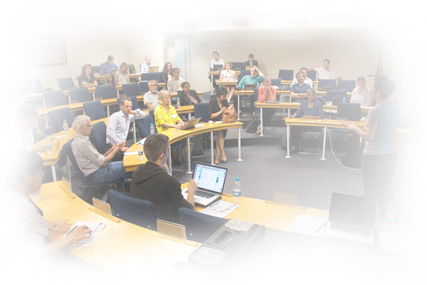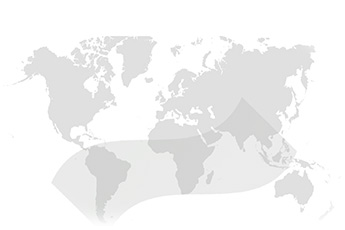Assessing the impact of OER adoption in expanding access to quality teacher education in Sub-Saharan Africa
Project overview
Project outputs
General Objective: The general developmental objective of this study was to contribute to an understanding of the impact of OER adoption (both positive and negative) on teacher education in Africa.
Research questions: In sub-Saharan Africa:
- Has there been any change in the number of student teachers enrolled/trained as a result of the availability of AVU open course modules (textbooks) in mathematics and science?
- Are there any notable differences with regards to the impact of OER on access and quality across the institutions investigated on the basis of the findings from Question 1?
- Has there been any change in the curriculum development practices of teacher educators as a result of the openness aspect of the AVU course modules (textbooks) in mathematics and science?
Overview
Teaching is one of the largest public service professions in any country, and for governments and tertiary institutions in Africa, the struggle continues to address the demand for trained teachers and the need for quality updated curriculum that reflects the demands of the current knowledge driven technological society. It is for this reason that OER initiatives hold such promise for addressing these challenges. An analysis and assessment of the impact of the OERs on teacher education and training can help shed light on the role and promise of OERs in addressing persistent issues of access, cost and quality that faces teacher education and training in sub-Saharan Africa.
According to D’Antoni (2009)[1], the William and Flora Hewlett Foundation which has acted as a strong advocate for OER since 2001 has supported many OER initiatives worldwide to equalize access to knowledge based on a three-part theory of change: 1) promote access to high quality educational resources; 2) remove barriers to open educational content and 3) encourage the use of OER worldwide. An analysis of several OER studies reveals that they seem to be largely driven by this three-part theory of change. They generally contend that the adoption of OER will positively impact on provision of education worldwide.
For instance, a study by Kumar (2009)[2] advances several potential impacts of OER. The study points out that the use of OER will potentially result in a substantial reduction in cost of providing education hence lead to greater access to education. In addition, the study asserts that OER will provide greater access to professional education and enhanced educational opportunities. This view is also supported by Butcher (2010)[3] who contends that OER have the potential to enhance the capacity and competence of instructors to design and integrate instructional material into high quality learning programs. Another position taken by Kumar’s study (2009) on OER is that they have the capacity to promote the provision of a more homogenous quality of education globally. This suggests that the adoption of OER will ensure that regions like Sub-Saharan Africa which have continued to lag behind in provision of quality education will be able to access quality educational resources.
The current literature on OERs seems to focus heavily on the potential of OER to scale up the provision of education and improve quality. However, without proper evidence of impact, OER runs the risk of becoming a buzzword in educational provision. Studies on OER should, in fact, pay more attention to the evaluation of its impact. As Dinevski (2008)[7] aptly asserts, “the discussion of OER has often been dominated by technical and management considerations rather than the perspectives of educational practitioners“ (p. 119). It is through the perspectives of the OER practitioners that it would be possible to carry out a more comprehensive audit of the impact of OER. There is, therefore, the need to redirect the focus of OER studies from their potential to actual impact.
In Sub-Saharan Africa, the articulation of OER with the expansion of access to quality educational resources appears to form the basis of several initiatives aimed at adopting and developing OER. Some of the more visible OER projects in teacher education in sub-Saharan Africa are the Teacher Education in Sub-Saharan Africa (TESSA) which was created by a consortium of 18 institutions that worked collaboratively to design and build a multilingual bank of OER with a view to improving the quality and access to university-led primary teacher education. The TESSA OER are essentially sets of practically focused study units aimed at directly improving teacher classroom practice (Thakar & Zinn, 2009)[4]. According to Moon (2008)[5], the TESSA consortium model makes it possible to share “advice and expertise which plays to strengths of participating institutions and avoids some of the issues that can surround north-south or even south-south partnerships” (p. 7). Another initiative and the focus of this study is the AVU Phase 1 Multinational Support Project. This was a multinational teacher education project that was funded by the African Development Bank (AfDB) and United Nations Development Program (UNDP), Somalia and implemented by the African Virtual University between 2005 and 2011. This was an ICT-integrated teacher education curriculum in Math, Physics, Chemistry and Biology. Seventy three courses modules were developed, peer-reviewed and translated into English, French and Portuguese totalling 219 modules that were released under a Creative Commons License. The development of the OERs were aimed at building capacity in the participating institutions with the objective of increasing access to quality education (Diallo, Wangeci & Wright, 2011)[6].
For this study, the developmental focus is on teacher education and training, an ongoing developmental challenge for many African governments. The general developmental objective of the proposed study is to contribute to an understanding of the impact of the adoption of OERs (both positive and negative) on teacher education in 10 countries in Africa. The specific developmental objective is to assess the impact on expanding access to quality teacher training in sub-Saharan Africa of OER course modules for an ICT-integrated teacher education curriculum in Math, Physics, Chemistry and Biology, and that were released under a Creative Commons License. In particular, the focus is on the Multinational Support Project Phase 1 that was coordinated by the AVU and involved twelve institutions from 10 countries.
References
Diallo Bakary, Thuo Kariuki C. W. & Wright, C.R. (2011). Approaches to the production and use of OERs: The African Virtual University experience. Commonwealth of Learning, Athabasca University.
Dinevski, D. (2008). Open educational resources and lifelong learning. In Information Technology Interfaces, 2008. ITI 2008. 30th International Conference on (pp. 117-122). IEEE.
Moon, B. (2008, November). Rethinking the role of the university in teacher education: The teacher education in sub-Saharan Africa (TESSA) experience. In Presentation to the ACU Conference of Executive Heads. Hyderabad International Convention Centre, India (pp. 28-30).
Thakrar, J., Wolfenden, F., & Zinn, D. (2009). Harnessing open educational resources to the challenges of teacher education in Sub-Saharan Africa. The International Review of Research in Open and Distance Learning, 10(4).
Adala, A. (2017). Assessing the impact of access to and availability of OER on the emergence and extent of open education practices in sub-Saharan Africa: The case of an ICT-integrated multinational teacher education program in math and science. Presented at Open Education Global Conference, 8-10 March 2017, Cape Town. Retrieved from https://www.slideshare.net/oeconsortium/assessing-the-impact-of-access-to-and-availability-of-oer-on-the-emergence-and-extent-of-open-education-practices-in-subsaharan-africa-the-case-of-an-ictintegrated-multinational-teacher-education-program-in-math-and-science



